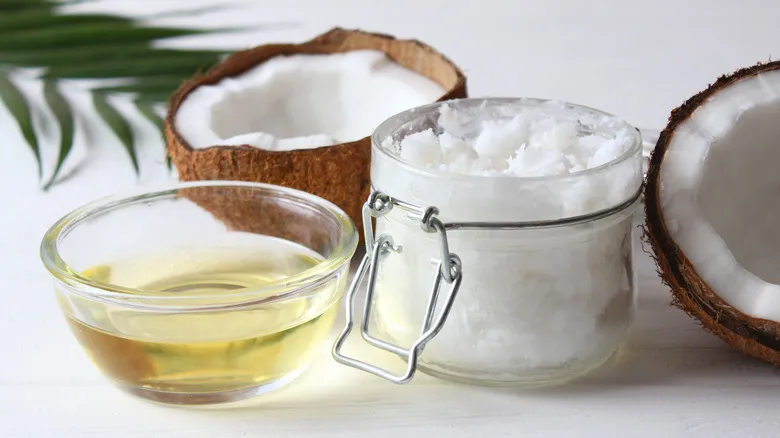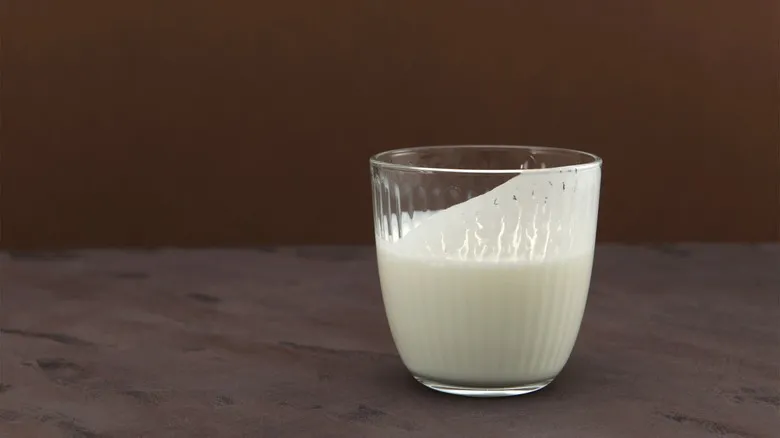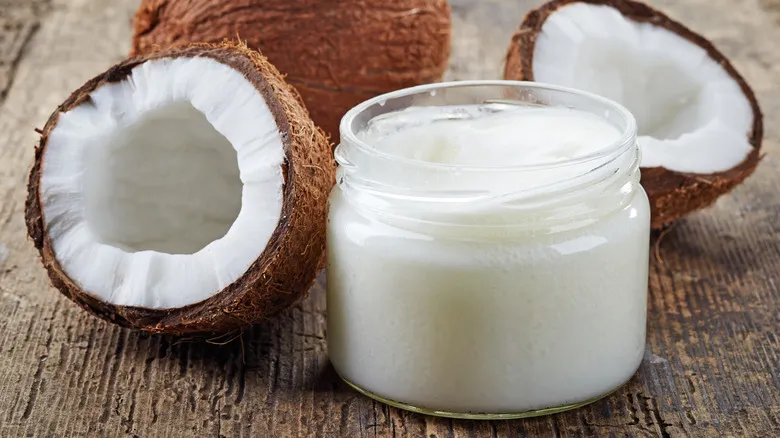Environment-proofing is the key

There are two types of coconut oil available for purchase: refined and unrefined. Unrefined, also known as virgin coconut oil, has the strongest coconut flavor and is essentially fresh oil extracted from coconut meat. The refined version, on the other hand, is processed to remove impurities and is often used as a neutral cooking fat since much of its flavor is eliminated. While both types have similar storage methods, their shelf lives vary—refined coconut oil can last up to five years, whereas unrefined typically lasts around two years.
If your coconut oil comes in a clear bottle, the first step is to protect it from light. Transfer it to an opaque or dark-colored container to prevent oxidation, but avoid metal containers as they can affect the oil's taste. Ensure the lid is sealed tightly and is airtight, as exposure to air can spoil the oil. If you don’t use coconut oil often, consider dividing it into smaller portions. This way, you can use it gradually without exposing the entire supply to air each time you open the jar.
Next, find a cool, dark, and dry place in your home for storage. A pantry is ideal, but a kitchen drawer or cabinet will also work. Just make sure to keep it away from the stove and any open windows, as heat and light can negatively impact your coconut oil.
Is it bad if my coconut oil melts?

Coconut oil, in contrast to most cooking fats, is a white, waxy solid at room temperature (approximately 75 degrees Fahrenheit). If you reside in a warmer climate, by the time you open the jar to check on the oil (which is advisable to do every couple of months to ensure it's stored properly), it may have liquefied. There's no need to worry; this is completely normal and does not compromise the oil's quality. In fact, many people prefer using coconut oil in its liquid state, as it is easier to pour into a pan.
If you like your coconut oil to remain solid, you can refrigerate it for about an hour. While you can keep it in the fridge permanently if you wish, it will solidify into a block that can be challenging to scoop out. A simple solution is to let it sit on the countertop for a few minutes to soften before use.
For the best of both worlds, consider splitting your coconut oil into two containers. Keep one jar in the fridge for recipes that require solid coconut oil, such as a butter substitute in homemade cookies or for achieving the crispiest grilled cheese. Store the other jar at room temperature for easy pouring in recipes like gluten-free coconut and pecan granola. This way, you'll always have the right consistency of coconut oil on hand!
Recommended

Yes, You Can Freeze Watermelon. Here's How

How Long Pesto Will Still Taste Good After Opening

How Long Buttermilk Stays Fresh After Opening

The Best Way To Store Peaches
Next up

